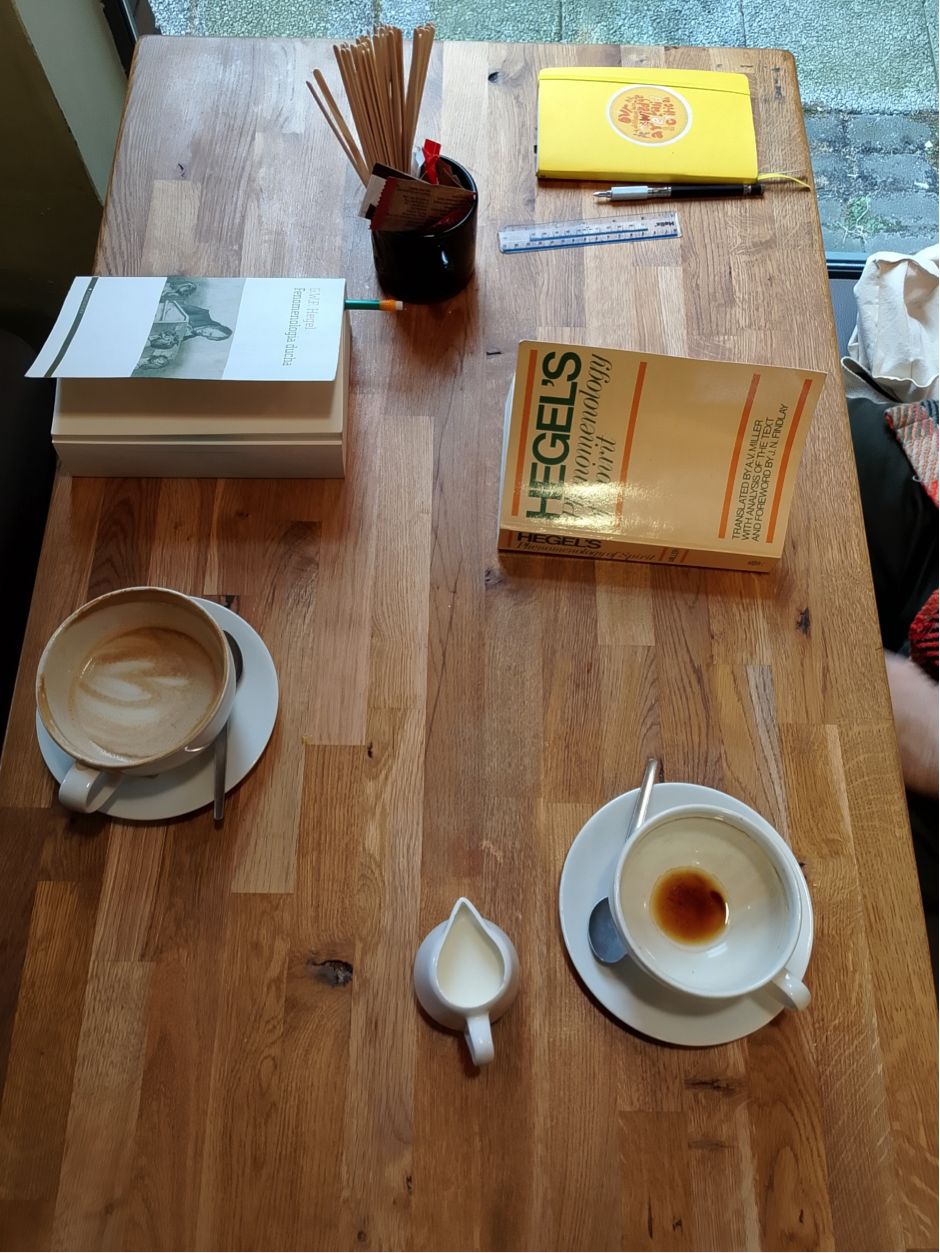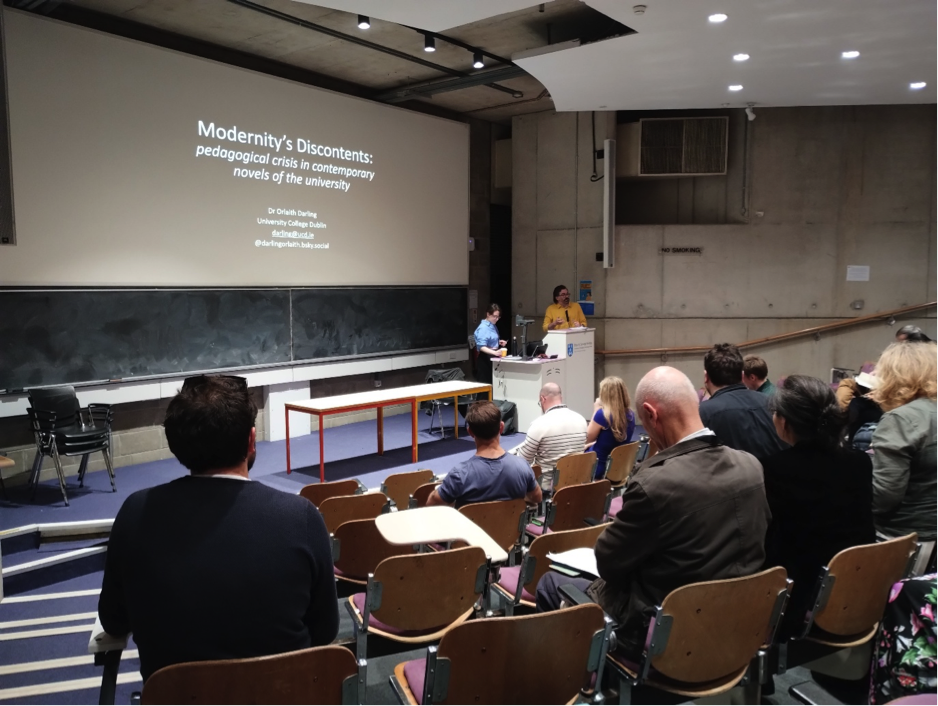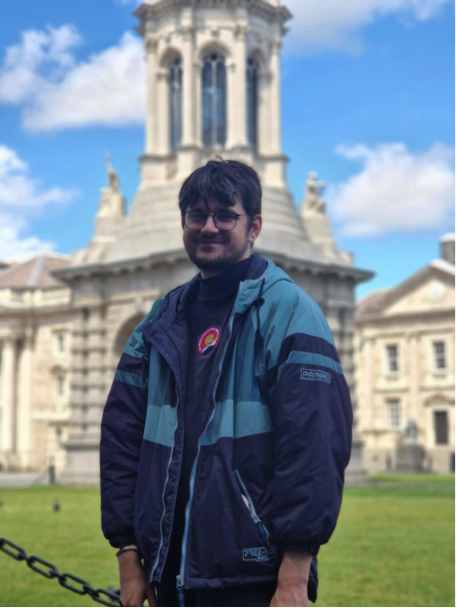Philosophy, history of education and international exchange: looking beyond competition
Dr. Franciszek Krawczyk, 18/09/2025
Coming to Ireland for research is a fascinating journey that has helped me develop a project that can help us rethink international higher education. It encourages thinking beyond competition and looking for struggles for a better world that we can share. I started my postdoc project in the School of Education of Trinity College Dublin in February. I did my PhD at Adam Mickiewicz University in Poland, and my project uses my knowledge of those two systems to compare Irish and Polish higher education. It is a great example of how European collaboration can help us to develop our research and better understand the world we live in – my postdoc project is fully funded by the Polish Agency for International Exchange.
Working at Trinity
I found Trinity a deeply inspiring space for research and thinking. It has a rich history, brilliant scholars, and a vivid community of scholars and students. I attended interesting lectures, seminars, watched a play in the student theatre, and spent countless hours in the library reading about social theory and the history of Irish higher education.
My research is conducted in The Cultures, Academic Values and Education Research (CAVE) Centre, which gives me the opportunity to consult my research with brilliant scholars of Irish higher education. I especially gained a lot from frequent consultations with the mentor of my project, Andrew G. Gibson. He helped me clarify ideas behind my research, prepare a research ethics application and recommend many valuable readings. A huge part of our work is philosophy, so instead of going to the lab, we sit in the café and discuss Hegel’s “Phenomenology of the Spirit” to put our thinking about university in the dialectical motion.
Seminar on Hegel
The other great experience was being able to co-organise the Philosophy and Theory of Higher Education Society Conference “Creative University”, taking place in Trinity and UCD. People from all over the world came to present and discuss how we can think about creativity in the university, facing multiple crises, and a difficult legacy of its colonial engagement. Academia can often create stressful, precarious and toxic environments, but coming together, discussing, thinking, and building a community creates moments of refuge and a base for a better future.
PATHES Conference
Research on the international position of universities
Valuable research is never done in a vacuum. All of the above (buildings, people, atmosphere, coffee, and Hegel) create a complex infrastructure that allows me to get new ideas, think critically, and develop my research project.
The first stage of my project was focused on a philosophical comparison of the basis of our thinking on the international hierarchy of higher education. I compared two traditions of thinking about it that are usually conflated when scholars create an international landscape of central, semi-peripheral, and peripheral universities. I developed a detailed comparison between the main sources of those traditions – the works of Joseph Ben-David and the works of Immanuel Wallerstein. The first developed perspective on global science was based on international competition, but the latter focused much more on the development of global capitalism and asked what role universities played and can play in it. For the first one, universities are mostly places of international competition for abstract excellence in science; for Wallerstein, universities are rather contradictory places of legitimisation and (on the other hand) struggle against the capitalist system.
The second stage of the project is comparing Trinity College Dublin and the Polish University of Warsaw from the perspective of those two traditions. Trinity is higher ranked in the international rankings and has more publications in the relevant international databases. But instead of comparing whether Trinity College Dublin is better or worse than various other European universities, we can focus on similarities in the political or economic role that university plays in our societies. Trinity, through most of its history, worked as an important agent of the British Empire, and the genealogy of the University of Warsaw is strictly connected with imperial ambitions of Russia and Polish resistance against it. Both universities were the place of lively students’ protests in 1968 and protests against academic collaboration with Israel last year. Both universities are also strongly limited by the economic position of the countries in which they are located. It is connected with: weakness of local academic publishers, limited funding, or struggles with managerial politics established at the state level.
Student journal “Revolutionary alternative” published in 1968 and preserved in the university’s library
In the next six months, I will develop my project to show how we can think about international higher education beyond competition. Instead of counting who published more, we can think about how to understand common problems and struggles that we share, regardless of national contexts. Rethinking our philosophical assumptions and learning about the history of our universities can help us to inspire new ways for academic collaboration that will help us with our shared social struggles and will not be a pursuit of empty research excellence.
Dr. Franciszek Krawczyk
Dr Franciszek Krawczyk is a postdoc at Trinity College Dublin and a part-time research assistant in the Scholarly Communication Research Group of Adam Mickiewicz University. Currently, he is conducting his original postdoc project, “Is Trinity College Dublin semi-peripheral? Study of two conflicting traditions of writing about centre and peripheries”. He is also engaged in the project “Origins and development of the peripheral academic capitalism in Poland (1990-2021)” and preparing an application for an original project about the history of Polish academic publishing. He published in international journals on centres and peripheries of higher education, geopolitics of academic publishing, and predatory publishing.
You can follow Franciszek on Bluesky, Twitter/X, and Google Scholar:




